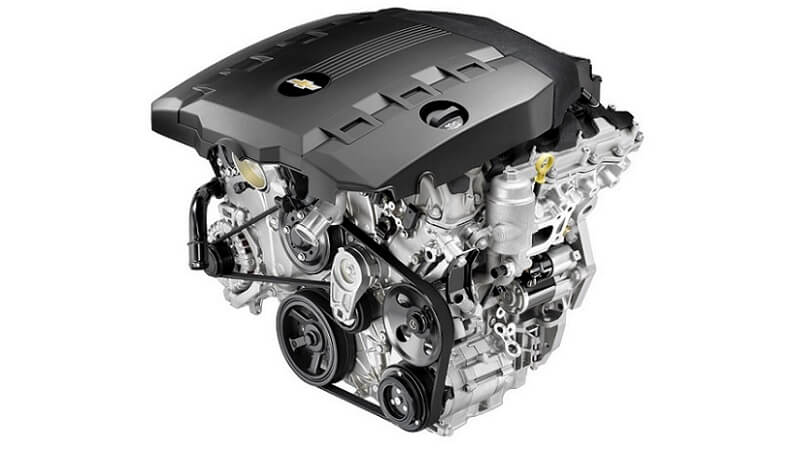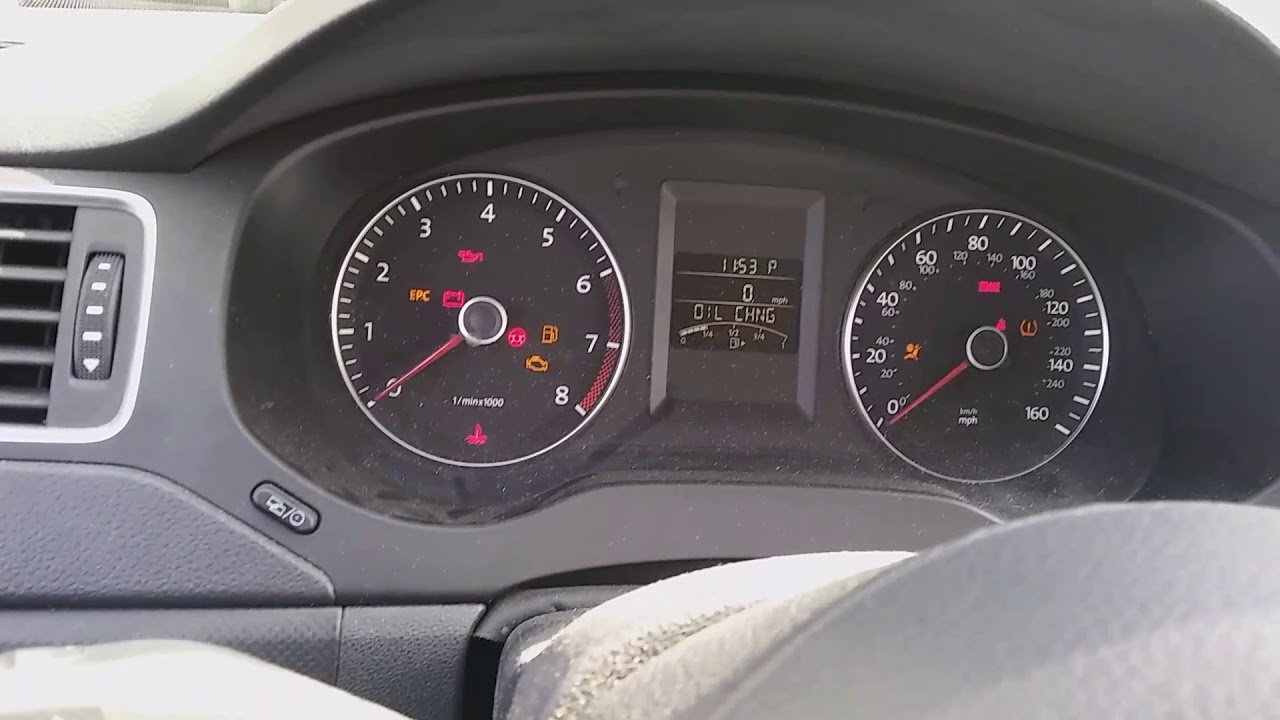Are you experiencing a rough idle in your vehicle?
If so, you may be wondering if a bad alternator is the culprit.
The answer is yes!
A bad alternator can cause rough idle, along with other issues like poor acceleration and hesitation.
In this article, we’ll explore the relationship between a bad alternator and rough idle, and what you need to know to keep your vehicle running smoothly.
So, buckle up and let’s dive in!
What is the main symptoms of a bad alternator?
The alternator is a crucial component in a vehicle’s charging system, responsible for generating electrical power to recharge the battery and power the electrical systems while the engine is running. When an alternator is failing or has gone bad, several symptoms may manifest. Here are the main symptoms of a bad alternator:
1:Dimming Lights
One of the early signs of alternator issues is dimming headlights or interior lights. If you notice that your lights are not as bright as they used to be, it could indicate a problem with the alternator.
2: Warning Light on the Dashboard
Most modern vehicles are equipped with a warning light on the dashboard that looks like a battery. If this light comes on, it is a clear indicator that there is a problem with the charging system, which includes the alternator.
3: Dead Battery
A failing alternator can lead to a discharged or dead battery. The alternator is responsible for keeping the battery charged, so if it fails, the battery will not receive the necessary charge and may eventually lose power.
4: Strange Noises
Unusual noises, such as a grinding or whining sound, may occur when the alternator is failing. These noises can be indicative of issues with the internal components, such as worn-out bearings.
5: Burning Smell
A burning smell, often resembling the odor of electrical burning, can be a sign of a failing alternator. This may be caused by overheating due to electrical issues within the alternator.
6: Electrical Issues
Flickering or malfunctioning electrical components, such as power windows, power seats, or the radio, can be attributed to a faulty alternator. The alternator provides power to these systems, and when it fails, they may not function properly.
7: Difficulty Starting the Vehicle
If your vehicle has a hard time starting or doesn’t start at all, it could be due to a lack of power from the battery, which may not be getting charged properly by the alternator.
8: Stalling or Sputtering Engine
A failing alternator can lead to inconsistent power supply to the engine, resulting in sputtering or stalling. This can happen when the electrical systems in the vehicle are not receiving a steady power source.
Can A bad Alternator Cause Rough Idle?
A bad alternator can cause a rough idle in your vehicle. The alternator is an essential component of your car’s electrical system, responsible for charging the battery and powering the electrical components of your vehicle.
When the alternator is not functioning correctly, it can cause a variety of issues, including rough idle, poor acceleration, and hesitation. A rough idle is a common symptom of a bad alternator, and it occurs when the engine is not running smoothly at idle speed.
This can be caused by a lack of electrical energy, which can lead to poor fuel delivery and misfiring spark plugs. If you are experiencing a rough idle, it is essential to have your alternator checked by a professional mechanic.
In addition to rough idle, a bad alternator can cause other issues with your vehicle’s electrical system. For example, it can cause the battery to die prematurely, which can lead to starting problems and other issues.
It can also cause the electrical components of your vehicle to malfunction, such as the power windows, power seats, and infotainment systems. If you notice any of these issues, it is important to have your alternator checked as soon as possible.
To avoid issues with your alternator, it is important to have it checked regularly by a professional mechanic. They can check the alternator’s output voltage and ensure that it is functioning correctly. Regular maintenance can help prevent issues with your alternator and keep your vehicle running smoothly.
Can a weak alternator cause a rough idle?
Yes, a weak alternator can potentially contribute to a rough idle in a vehicle. The alternator plays a crucial role in supplying electrical power to various components, including the ignition system. If the alternator is not generating enough power, it can affect the ignition system’s performance, leading to issues with engine idle.
Here’s how a weak alternator might contribute to a rough idle:
1: Ignition System Performance
The ignition system relies on a consistent and sufficient electrical supply to create sparks at the spark plugs. If the alternator is weak and not providing enough power, it can result in a weaker spark, causing misfires and a rough idle.
2: Fuel Injection System
Modern vehicles often use electronic fuel injection systems that rely on electrical signals for precise fuel delivery. A weak alternator can impact the performance of the fuel injection system, leading to irregular fuel delivery and, consequently, a rough idle.
3: Sensor Malfunctions
Many sensors in the engine control module (ECM) and other engine management systems rely on electrical power. If the alternator is not providing sufficient power, it can lead to erratic sensor readings and affect the engine’s ability to maintain a smooth idle.
4: Voltage Fluctuations
A weak alternator may result in voltage fluctuations in the electrical system. These fluctuations can disrupt the normal operation of various components, including those involved in maintaining a stable engine idle.
It’s important to note that while a weak alternator can contribute to a rough idle, there could be other factors at play as well. Issues such as vacuum leaks, faulty spark plugs, dirty fuel injectors, or problems with the air intake system can also cause rough idling.
Therefore, a comprehensive diagnosis by a qualified mechanic is recommended to identify and address the specific issues affecting your vehicle. If you’re experiencing rough idle and suspect alternator issues, it’s advisable to have your vehicle inspected as part of the troubleshooting process.
Can a bad alternator cause a high idle?

While a bad alternator is not a typical cause of high idle, it can indirectly contribute to such issues.
The alternator plays a key role in supplying electrical power to various engine components, and if it fails to provide sufficient power, it may affect the engine control module’s (ECM) ability to regulate the idle speed.
However, high idle is more commonly associated with problems in the idle control system, such as a malfunctioning idle air control valve, vacuum leaks, or issues with the throttle body.
It’s essential to consider a comprehensive diagnosis by a qualified mechanic to pinpoint the specific cause of the high idle, as multiple factors could be contributing to the problem.
Can a bad alternator affect acceleration?
A bad alternator itself is not a direct cause of acceleration issues in a vehicle. The alternator’s primary function is to generate electrical power to recharge the battery and power various electrical components when the engine is running. However, problems with the alternator can indirectly impact acceleration in the following ways:
Power Supply to Ignition System
The alternator provides electrical power to the ignition system, which is crucial for spark plug operation. If the alternator is failing and not delivering sufficient power, it may result in weaker spark plugs, leading to inefficient combustion and reduced engine performance, which can affect acceleration.
Weak Battery
The alternator is responsible for keeping the battery charged. If the alternator is not functioning properly, the battery may not receive a consistent charge, and a weak battery can affect the overall electrical system, potentially impacting acceleration.
Electronic Control Systems
Modern vehicles rely on electronic control systems that manage engine performance. Insufficient power from a failing alternator can disrupt these systems, including those controlling fuel injection and throttle response, leading to sluggish acceleration.
While a bad alternator can indirectly contribute to acceleration issues, it’s important to consider other potential causes such as fuel system problems, ignition system issues, clogged air filters, or malfunctioning sensors.
If you’re experiencing acceleration problems, it’s recommended to have your vehicle inspected by a qualified mechanic to diagnose and address the specific issues affecting performance.
Can a bad Alternator Cause Sputtering?
Yes, a bad alternator can potentially contribute to engine sputtering. The alternator plays a crucial role in supplying electrical power to various components of the vehicle, including the ignition system. If the alternator is failing or not providing enough power, it can lead to issues in the ignition process, resulting in engine misfires and sputtering.
Here’s how a bad alternator might cause sputtering:
Weak Spark
The alternator generates electrical power that is crucial for creating a strong spark at the spark plugs. If the alternator is not functioning properly, it may result in a weaker spark, leading to incomplete combustion and engine sputtering.
Fuel Injection System Issues
Many modern vehicles use electronic fuel injection systems that rely on precise electrical signals. A weak alternator can disrupt the proper functioning of the fuel injectors, causing irregular fuel delivery and contributing to sputtering.
Voltage Fluctuations
A failing alternator may cause voltage fluctuations in the electrical system. These fluctuations can affect the performance of various engine components, leading to erratic operation and sputtering.
Can a bad Alternator cause RPMs to Fluctuate?
Yes, a bad alternator can contribute to RPM (revolutions per minute) fluctuations in a vehicle’s engine. The alternator plays a critical role in providing electrical power to the engine control module (ECM) and various engine components.
If the alternator is failing, it can result in inconsistent power supply to the ECM, causing fluctuations in engine RPM. The ECM relies on a stable electrical supply to regulate fuel injection, ignition timing, and other critical parameters that influence RPM.
Voltage irregularities from a malfunctioning alternator can disrupt these processes, leading to RPM fluctuations and, in some cases, causing the engine to stall or operate erratically.
If you observe RPM fluctuations, it is advisable to have the vehicle inspected by a qualified mechanic to diagnose and address potential alternator or related electrical system issues.
Can a Bad Alternator Cause Engine to Shake?
Yes, a bad alternator can contribute to engine shaking. The alternator is responsible for supplying electrical power to various engine components, including the ignition system and fuel injection system.
If the alternator is failing and not delivering a consistent electrical supply, it can lead to uneven combustion in the engine, causing misfires and engine vibrations. Additionally, voltage irregularities from a malfunctioning alternator can disrupt the normal operation of sensors and electronic control systems, further contributing to engine instability and shaking.
If you notice your engine shaking, it is crucial to have your vehicle inspected by a qualified mechanic to identify and address potential alternator or related electrical issues that may be affecting engine performance.
Can A Bad Alternator Cause Sensor Problems?
Yes, a faulty alternator can indeed cause problems with various sensors in a vehicle. The alternator plays a vital role in providing a steady electrical supply to the engine control module (ECM) and the numerous sensors that help regulate engine performance.
If the alternator is malfunctioning or not delivering the required power, it can lead to erratic sensor readings and malfunctions. Modern vehicles rely heavily on sensors for critical functions such as air-fuel ratio monitoring, engine temperature regulation, and emission control.
When the alternator fails to maintain a stable electrical output, these sensors may provide inaccurate data to the ECM, potentially leading to issues like poor fuel efficiency, rough idling, or even triggering warning lights on the dashboard.
It’s important to recognize that addressing sensor problems caused by a bad alternator requires not only fixing or replacing the alternator itself but also evaluating and potentially replacing any sensors that may have been damaged.
If you suspect sensor-related issues or notice unusual dashboard warning lights, seeking professional assistance for a thorough diagnostic check is advisable to identify and rectify the specific problems affecting your vehicle’s performance.
FAQs
What is an alternator?
An alternator is an essential component of your car’s electrical system, responsible for charging the battery and powering the electrical components of your vehicle.
Can a bad alternator cause rough idle?
Yes, a bad alternator can cause rough idle, along with other issues like poor acceleration and hesitation.
How can I tell if my alternator is bad?
A professional mechanic can check the alternator’s output voltage and ensure that it is functioning correctly. Some common warning signs of a bad alternator include a dead battery, dimming headlights, and dashboard warning lights.
What causes an alternator to go bad?
Some common causes of a bad alternator include worn-out bearings, a broken rotor, or a damaged stator.
How long does an alternator last?
The lifespan of an alternator can vary depending on the make and model of your vehicle, but most alternators last between 80,000 and 150,000 miles.
Can a bad alternator cause other issues with my vehicle?
Yes, a bad alternator can cause other issues with your vehicle’s electrical system, such as malfunctioning power windows, power seats, and infotainment systems.
How much does it cost to replace an alternator?
The cost of replacing an alternator can vary depending on the make and model of your vehicle, but it typically ranges from $300 to $500.
Can I drive my car with a bad alternator?
It is not recommended to drive your car with a bad alternator, as it can cause other issues with your vehicle’s electrical system and lead to a dead battery.
How can I prevent issues with my alternator?
Regular maintenance can help prevent issues with your alternator and keep your vehicle running smoothly. It is important to have your alternator checked regularly by a professional mechanic.
Also Read: How To Turn Off Seatbelt Alarm 2021 F150? All You Need To Know!
Conclusion
A bad alternator can cause a rough idle in your vehicle, along with other issues with your vehicle’s electrical system.
Regular maintenance can help prevent issues with your alternator and keep your vehicle running smoothly.
If you are experiencing a rough idle or other issues with your vehicle, it is important to have your alternator checked by a professional mechanic.
Remember, a bad alternator can cause a variety of issues, including poor acceleration, hesitation, and even stalling.
So, don’t wait until it’s too late to have your alternator checked!




